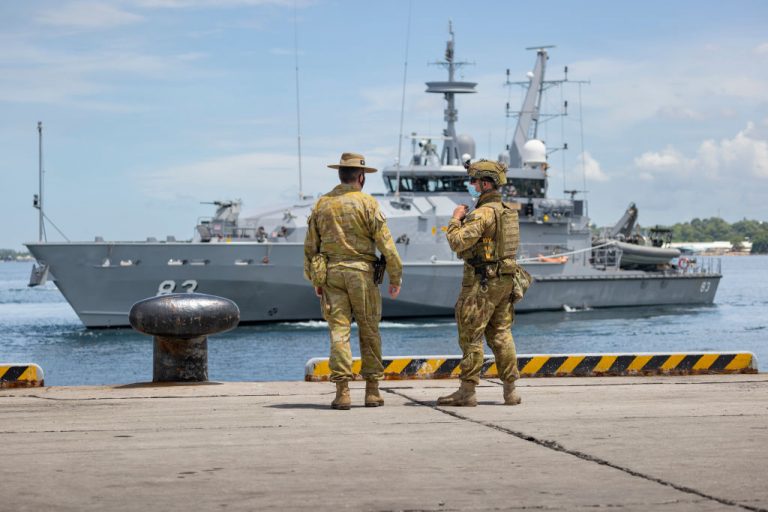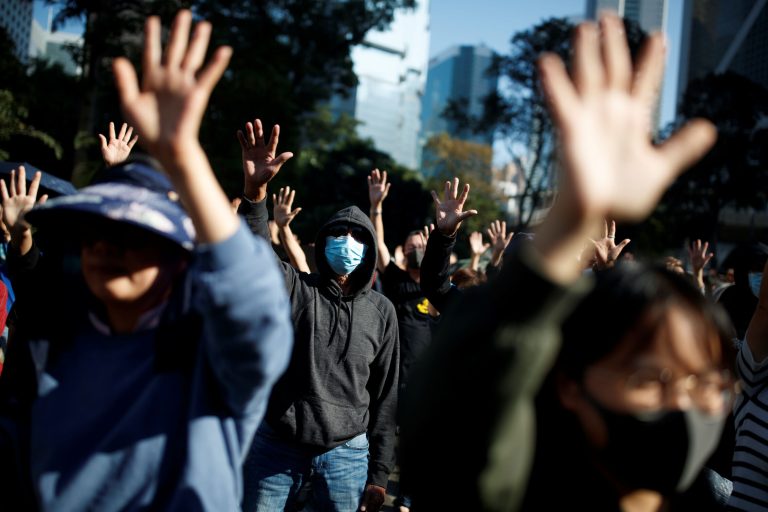US officials voice concern over Beijing’s expanding international influence
Following last week’s visit by an Australian minister to the Solomon Islands, the U.S. announced on April 18 that it will also be sending two top officials to the South Pacific island over concerns that China could establish a military presence in the region.
The White House announced on Monday that Kurt Campbell, the National Security Council Indo-Pacific coordinator, and Daniel Kritenbrink, the assistant secretary of state for East Asian and Pacific affairs, will lead a delegation of American government officials to the Solomons later this week. The statement added that the visit will also include diplomatic meetings in Fiji and Papua New Guinea.
PREVIOUS COVERAGE:
- Solomon Islands Under Western Pressure to Scrap Security Deal With China
- Following Confirmed Security Deal, Leaked File Reveals China Intended to Build Naval Base in the Solomon Islands
- Rioters Burn Solomon Islands Over Federal Government’s Ties to Beijing: Reports
Meanwhile in Beijing, People’s Republic of China (PRC) Foreign Ministry spokesperson Wang Wenbin, along with Foreign Minister Wang Yi and his Solomon Islands counterpart, Jeremiah Manele, officially signed a security deal over the weekend that aimed at “strengthening the Solomons Islands’ police force and diversifying its security outreach.”
A draft of the pact, which was leaked online, revealed that Chinese warships could stop in the Solomon Islands at any time and that China’s People’s Liberation Army (PLA) could also deploy armed forces there “to assist in maintaining social order.”
China’s growing military network
Wang told reporters at a daily press briefing today that the security agreement would cover “maintaining social order and strengthening foreign investments,” along with protecting the lives and property of residents, while also providing humanitarian assistance and responding to natural disasters.
“We are committed to helping the Solomon Islands in strengthening its capacity to build and maintain national security,” Wang said, adding that the agreement does not seek to supersede the South Pacific nation’s security ties with other nations, and will not see a Chinese military presence in the region.
The Solomon Islands has sought to downplay the significance of the agreement and says it won’t agree to Beijing establishing a PLA military base there, but many neighboring countries and Western nations remain worried that the Pacific nation could change its mind.
Success
You are now signed up for our newsletter
Success
Check your email to complete sign up
According to the leaked file, the proposed security arrangements revealed that Beijing had intentions of building a military base there as early as 2020.
The letter, which was first obtained by news.com.au, was signed by company President Rong Qian from Avic International Project Engineering Company, a Beijing-based state-owned aviation company, and was addressed to Premier Leslie Kikolo of Isabel Province in the Solomon Islands on Sept. 29, 2020.
“We, AVIC-INTL Project Engineering Company … present this letter to demonstrate our intent to study the opportunity to develop naval and infrastructure projects on leased land for the People’s Liberation Army Navy in Isabel Province with exclusive rights for 75 years,” the letter read.
Concerns in Washington
U.S. State Department spokesman Ned Price said the security agreement could destabilize the Solomon Islands and would set a concerning precedent for the wider Asia-Pacific region.
“Despite the Solomon Islands government’s comments, the broad nature of the security agreement leaves open the door for the deployment of PRC military forces to set up roots in the Solomon Islands,” Price said.
Both China’s foreign minister and Solomon Islands’ Prime Minister Manasseh Sogavare denied that the security deal would signal an increased Chinese military presence in the region.
“It will not be in the interest of Solomon Islands to host any naval or military base of any country, because that will immediately make Solomon Islands a military target for other countries,” Sogavare told The Solomon Times on April 6.
The Solomon Islands, home to fewer than 1 million people, lie around 1,240 miles northeast of Australia. In 2019, the oceanic nation switched diplomatic recognition of the “one China” from Taiwan (officially the Republic of China) to the PRC in 2019 — signaling the communist regime’s growing global influence.
Beijing so far operates just one acknowledged foreign military base, in the impoverished but strategically important Djibouti, located in the Horn of Africa. Military analysts believe that the PLA has been trying to establish an overseas military network in both Africa and the Asia-Pacific region — even if the term “base” isn’t used.














